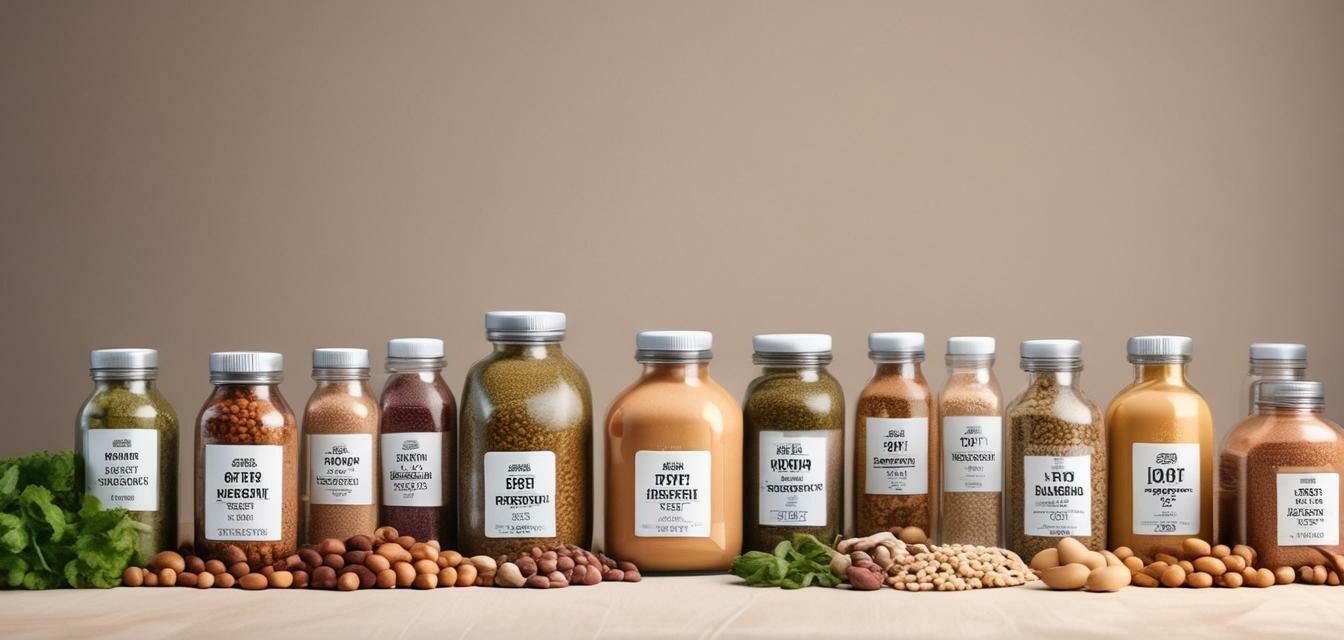
Comparing Plant-Based Protein Sources: Which is Best?
Key Takeaways
- Different plant-based protein sources vary in their amino acid profiles.
- Protein powders offer convenience and high protein density.
- Whole food sources contribute additional nutrients and benefits.
- Choosing the right source depends on personal dietary preferences and fitness goals.
As veganism gains traction and more people adopt plant-based diets, the need to understand various protein sources becomes crucial. Plant-based proteins not only support muscle repair and growth but also provide essential amino acids and nutrients. In this article, we’ll analyze various sources of plant-based protein, helping you determine which is best suited for your fitness needs.
What Makes a Good Protein Source?
When evaluating protein sources, consider:
- Amino Acid Profile: Complete proteins contain all nine essential amino acids.
- Digestibility: How easily the body can absorb and utilize the protein.
- Additional Nutrients: Vitamins, minerals, and fibers that support overall health.
Common Plant-Based Protein Sources
| Protein Source | Protein Per Serving | Amino Acid Profile | Best For |
|---|---|---|---|
| Pea Protein | 20g | Rich in BCAAs | Muscle building |
| Brown Rice Protein | 15g | Low in lysine | Meal replacements |
| Hemp Protein | 15g | Complete protein | Overall health |
| Chia Seeds | 5g | Complete protein | Protein boost |
Examining Protein Powders
Protein powders are a favorite among athletes due to their convenience and high protein density. Here, we look at popular options:
Orgain Organic Vegan Protein Powder, Creamy Chocolate Fudge
This protein powder contains 21g of plant protein per serving, along with 7g of prebiotic fiber, making it a fantastic option for shakes, smoothies, and baking.
Learn MoreOrgain Organic Vegan Protein + 50 Superfoods Powder, Vanilla Bean
This protein powder provides 21g of protein and 8g of fiber per serving, endorsed for its high quality and selection of superfoods that boost nutrient intake.
Learn MoreWhole Food Protein Sources vs. Protein Supplements
When deciding between whole foods and supplements, consider your lifestyle and dietary needs:
- Whole Foods: Generally provide additional vitamins, minerals, and fiber.
- Supplements: Convenient, especially for those with higher protein needs or busy schedules.
Incorporating Protein into Your Diet
Here are some tips for making sure you get enough plant-based protein:
- Include a variety of protein sources in your meals (e.g., legumes, nuts, seeds).
- Consider using protein powders in smoothies or baking.
- Track your protein intake to ensure you meet your fitness goals.
Conclusion
Deciding on the best plant-based protein source depends on your individual nutritional needs and lifestyle. By exploring various sources, both whole foods and powders, you can effectively fuel your body and meet your fitness goals. Explore our in-depth articles for more insights: Vegan muscle building supplements and Vegan post-workout recovery.
Tips for Beginners
- Start by incorporating one new protein source each week.
- Experiment with different recipes to find what you enjoy.
- Stay informed about your nutritional requirements.



